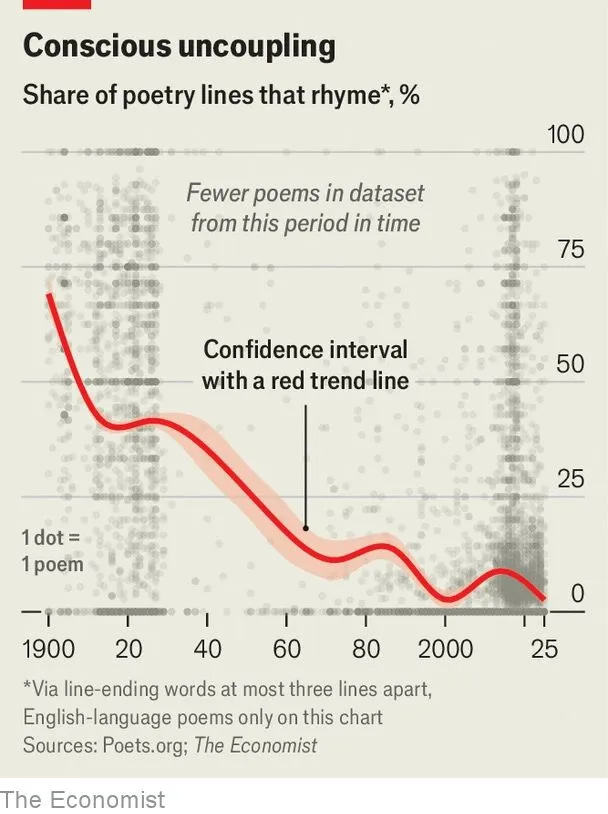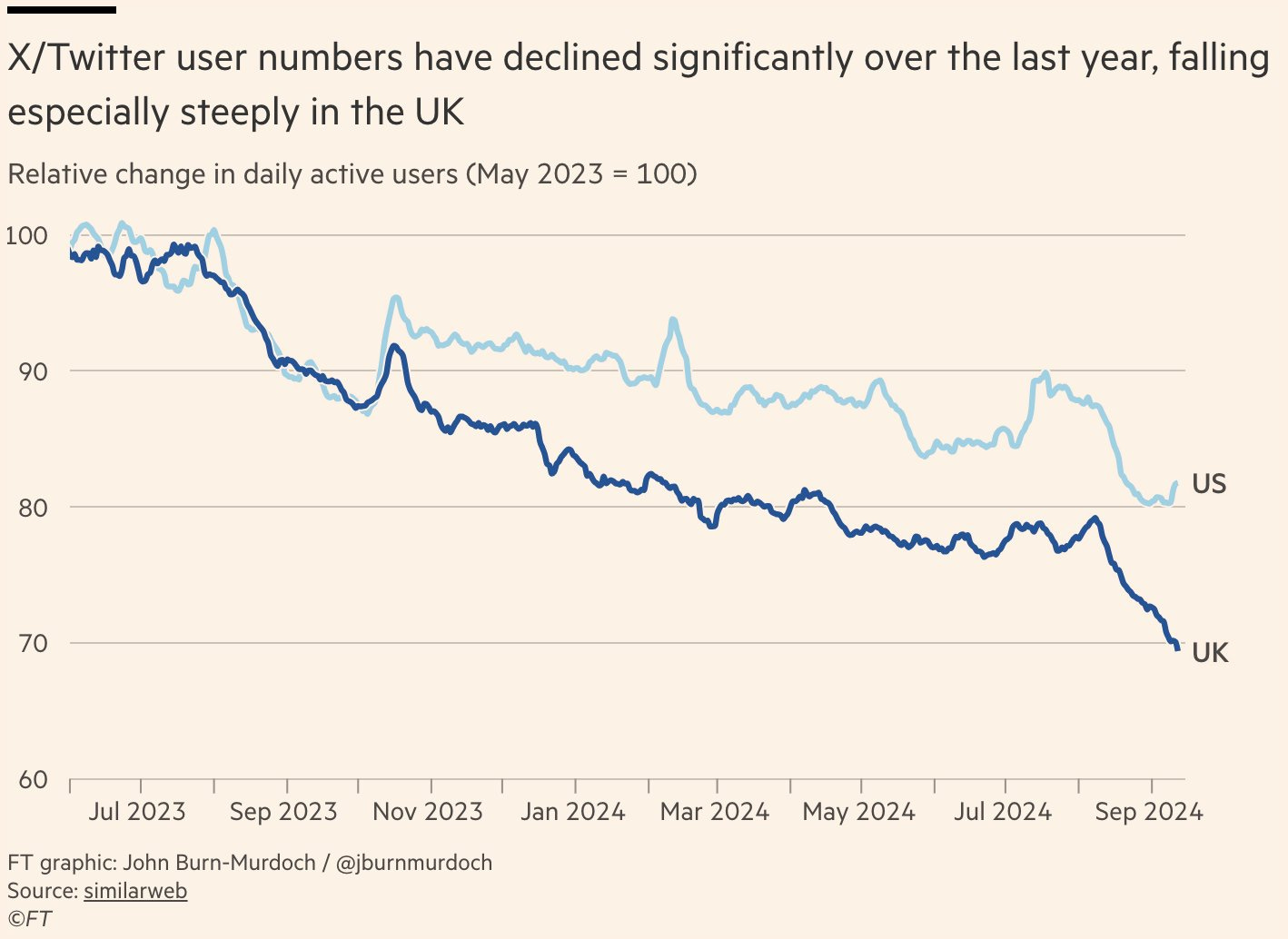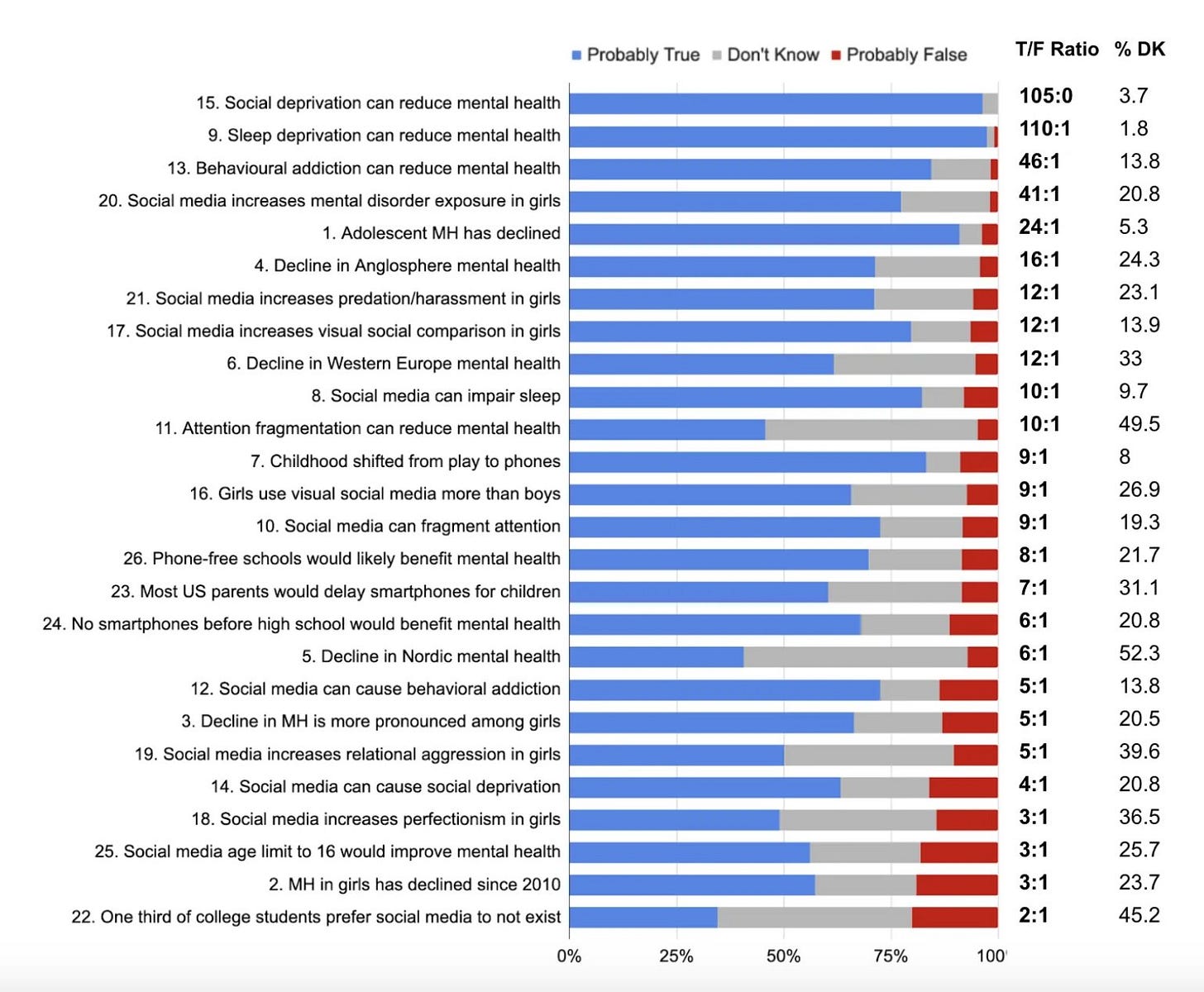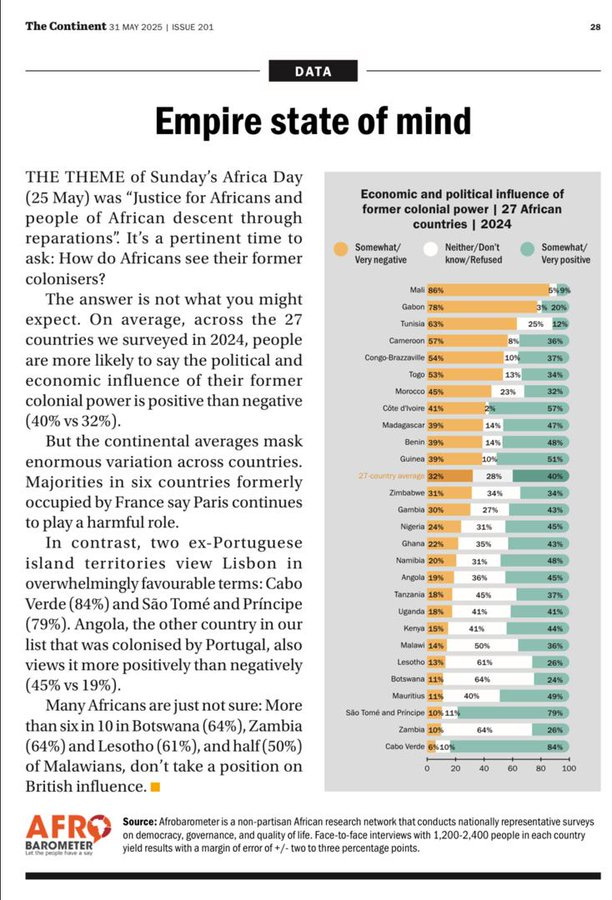Links For July 2025
...
[I haven’t independently verified each link. On average, commenters will end up spotting evidence that around two or three of the links in each links post are wrong or misleading. I correct these as I see them, and will highlight important corrections later, but I can’t guarantee I will have caught them all by the time you read this.]
1: Nostalgebraist on OpenAI’s “creative writing” AI. LLMs trained to “write well” go for easy wins; the more constrained the AI, the easier the win. This can look impressive at first glance but quickly gets repetitive. Aside from being a good post about AI, this post helped me crystallize some thoughts on what “good writing” and “good taste” are in general.
2: In the 1952 Texas gubernatorial election, incumbent Allan Shivers ran on both the Democratic and Republican tickets, beating himself 73%-25%.
Although Shivers was a Democrat, the Republicans nominated him too as part of a galaxy-brained plan to encourage Shivers supporters to vote straight Republican (h/t BobaCalifornian).
3: Chess grandmasters don’t really burn 6000 calories a day during matches.
4: SecureBio runs a “nucleic acid observatory” that searches wastewater for new or dangerous viruses. In April, they announced that a local sewage system contained a genetically-modified version of cytomegalovirus, which appeared to be a “discard” from a local lab (related to but not exactly the same as a lab leak; discards can be deliberate dumps of viruses considered too innocuous to worry about). This particular virus isn’t dangerous, but it serves as proof-of-concept that the observatory is doing its job.
5: Trigger warning: creepy, bugs, body horror, seriously DON’T READ IF YOU DON’T LIKE CREEPY BUG BODY HORROR:
The tweet thread doesn’t have a working link, but it seems to be the same technology discussed in Spider-Robot For Surgical Interventions.
6: Cate Hall on her experience taking testosterone. “When I played poker professionally, I was a staunch advocate for the position that there are few women at the top of the game for reasons that are primarily sociological: women aren’t encouraged to learn (96% of serious players are male); the environment is unwelcoming to them (see ‘The Royal Flush Girls’); and they aren’t invited to join the study groups that are critical for cracking into the elite tier . . . And yet. In the earliest weeks of testosterone therapy, when I really started to feel it kicking in, one of my first thoughts was: ‘I would have been so much better at poker if I’d had this.’”
7: Related: Cube_Flipper on his (?) experience taking estrogen. “What did change was my sense of space. This one’s quite subtle – it was the kind of thing that was more noticeable when I experimented with deliberately spiking my hormones. I’ll do my best to explain. It’s as if I took the entire volumetric representation of the space around me and increased the degree to which every point within that could influence the location of every other point, recursively. This allows everything to elastically settle into a more harmonious equilibrium. This effect is basically identical to what a small dose of psychedelics can do, specifically a tryptamine like psilocybin or DMT.”
8: Ming Chinese karma scoring systems (h/t Whyvert, paper here, longer Twitter thread by EdwardW2 here):
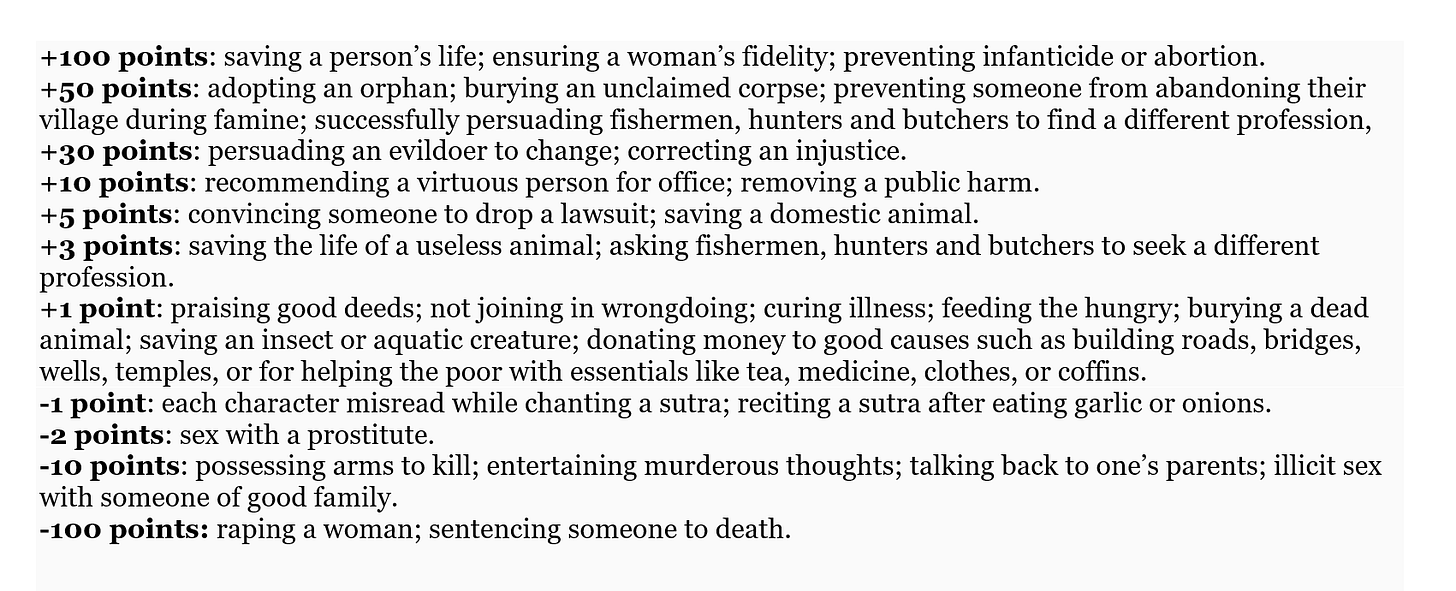
9: Meta has spent $50 - 70 billion on the metaverse over the past five years. For context, that’s about the GDP of Cambodia, or 1/5 the inflation-adjusted cost of the Apollo Program. Forbes has an update on the state of the technology as of this February: “Looking at . . . the current state of Meta’s VR universe, it is absolutely impossible to imagine a world where this kind of thing is ever going to succeed.”
10: From Polling USA:
Comments attribute the shift to some combination of Trump, the manosphere, and wokeness, but all those things existed well before the peak in 2018. Did it just take a while for them to get big enough to have an effect? If not, what’s going on?
11: Report from a recent Harvard conference on drugs and religion: Many Jews are really into psychedelics. It would be convenient if there were seem deep synergy between the Jewish religion and psychedelia. But there isn’t. So they can either drop the issue, or else confabulate something. Anyway, the link is titled Psychedelic Judaism Is Going To Win.
12: OpenAI agrees to keep nonprofit control for now. But Garrison Lovely thinks this is in name only and they’re still working on ways to legally subordinate the philanthropic mission to the profit motive. Related: The Open AI Files, a massive collection of everything shady about OpenAI (that we know of!)
13: Related: Trump’s “Big Beautiful Bill” originally banned states from regulating AI for ten years, but this provision got pushback, including from Republicans whose votes Trump needed. Earlier today, Senator Blackburn, a leading Republican critic, said she struck a compromise with proponent Ted Cruz - the ban would only last five years, and some online privacy and child porn regulation would be exempted. But this evening, the compromise fell apart, and IIUC the Senate has now voted 99-1 to remove the AI regulation ban entirely (X) (though I’m going entirely off this one tweet and it doesn’t seem to have made it into the news yet). The Big Beautiful Bill still cuts Medicaid, lowers taxes (especially on the rich), attacks the solar and clean energy industries, and adds $3 trillion to the national debt. If you have opinions, consider calling your representative, although this is more likely to matter if they’re a Republican.
14: Related: Michael Trazzi has released a half-hour documentary on the fight over California’s SB-1047 AI regulation bill, available free on YouTube:
15: Bryan Caplan expresses hope that cutting federal science funding will make more scientists start companies. But Nicholas Decker cites a paper finding that "a negative federal funding shock reduces a researcher's chance of founding a high-tech startup by about 80% of the mean".
16: Related from Decker: suppose that Democrats promise that, once they regain control of the government, they’ll pay universities all the counterfactual funding they would have gotten if Trump hadn’t cut their budget. Then universities borrow money now against that future windfall. What goes wrong?
17: From the Economist, via jmarriott - the decline of rhyming poetry:
I’d always heard modernism was a reaction to the trauma of the World Wars, but it looks like the rhyme decline started well before then.
18: The latest on theism, fine-tuning, anthropics, and many-worlds: Onid on simplicty priors, Onid contra mathematical realism, and Dylan Black on measure (plus a Highlights From The Comments). I especially appreciate the Highlights From The Comments thread - it’s easy to write a blog post with the standard argument for some position; the real benefit comes when you see someone’s back-and-forth with smart critics. Good for Dylan for answering so many people’s questions and objections.
19: Mifepristone (aka RU-486, the “abortion pill”) in early-stage investigation as a depression treatment.
20: A journal has retracted the paper claiming that a comet hit a Bronze Age city in Jordan (and potentially inspired the story of Sodom and Gomorrah); see the PubPeer page for some of the “inappropriate manipulation” that was detected.
21: Tim Fist on chip sanctions.
22: Radiopaper is a social media conversation site where you can pay people (for example, famous public intellectuals) to write responses to your posts. They’ve got some moderately famous writers and bloggers on there, seems like an interesting model.
23: Ethan Strauss on the controversy around A’ja Wilson’s WNBA sneaker. It’s a standard wokeness fight, but inadvertently offers a lens into the crazy world of basketball sneaker and people who care way too much about them. Did you know 32 active NBA players have their own sneaker lines? Or that some NBA shoe endorsement deals run into the 9 digits, with top basketball players making more money from sneakers than from the salaries? Or that sneaker deals going to the “wrong” player garners a level of outrage I usually associate with major geopolitical conflicts?
24: Naomi Kanakia is running a contest for the best self-published literary novel, with special mention of people serializing on Substack.
25: Contrary to rumor, you will not go to Hell just for betting on prediction markets about the new Pope.
26: Related - Behind-the-scenes look at the politicking and coalition-building that ended with the election of Pope Leo. I thought you weren’t allowed to do any of this, and certainly not talk about doing any of it, on pain of excommunication?
27: Works In Progress on whether SLGT-2 drugs could be the next GLP-1 agonists - a diabetes drug which magically cures everything else too - in this case, heart disease, kidney disease, liver disease, maybe even increased life expectancy. Shame about the genital gangrene, though.
28: Eliezer Yudkowsky and Nate Soares have a book on AI coming out in September, catchily titled If Anyone Builds It, Everyone Dies. Nobody is very surprised that they wrote this book, but I’m a little surprised at the endorsements they managed to collect, including Stephen Fry, Ben Bernanke, and a former undersecretary of Homeland Security. As always, if you support the cause, pre-orders can be especially helpful in creating buzz and catching booksellers’ interest.
29: The Daily Show did an episode on shrimp welfare, apparently thanks to Bentham’s Bulldog’s indefatigable pro-shrimp blogging. An inspiring story of how a single ordinary person, if they try hard and believe in themselves, can get their pet cause made fun of on national television (but in a good way, I think)!
30: Twitter and Bluesky both seem to be losing users:
31: Ross Douthat interviews JD Vance. In the section on AI he says “I actually read the paper of the guy that you had on. I didn’t listen to that podcast.” The “guy [Ross] had on” is Daniel Kokotajlo, so Vance is saying he read AI 2027! Maybe I should have made the VP character a little less sinister; hindsight is 20-20.
32: Superforecaster Nuno Sempere (maybe with the rest of the Samotsvety team?) has launched askaforecaster.com. You can get a “quick take” for $20, a “thoughtful response” for $150, or an “in-depth look” for $1000.
33: A few years ago, a group surveyed expert biologists on their beliefs about zoonotic vs. lab origins of COVID; most believed zoonosis. Lab leakers objected that many of the “experts” said they hadn’t heard of DEFUSE (the gain-of-function project Wuhan was involved in; knowing about this should be table stakes for this discussion), and many others said they had heard of a fake paper put into the poll to trap lazy/dishonest responses; this (they said) invalidated the survey. But I recently learned (X) that there’s crosstabs in the appendix, and neither of these matter - people who had heard of DEFUSE, or who honestly admitted not having heard of the fake paper, had the same answers as everyone else. In fact, opinion always divided about 77-23, regardless of whether participants had seen any particular piece of evidence, fell for the fake paper, or whatever. I guess this is good (the verdict wasn’t dependent on a few ignorant or dishonest people), but maybe also bad (shouldn’t being familiar with the best evidence for one side or the other make you believe that side more?)
34: Some forecasters have bimodal AI timelines: either we’ll get AGI before mega-scaling runs out in 2030, or we’ll have to wait for something other than mega-scaling and will probably take until 2040 or beyond. Daniel Eth disagrees (X).
35: More research on o3’s GeoGuessng abilities: it is definitely using solar angle to estimate latitude, and you can too (if you’re good at trigonometry and have lots of free time).
36: A humanitarian aid veteran analyzes what went wrong with food distribution in Gaza (X).
37: The Grok vs. xAI saga continues:
38: Expert survey on adolescent social media use (h/t Derek Thompson):
39: Between 1993 and 2021, female labor force participation in India stayed constant, but TFR fell from 3.8 to 2.0, posing a challenge to theories that women’s employment is a primary driver of fertility decline (h/t Scholars_Stage, mxtaverse).
40: Hard to assess how well Tesla’s robotaxis are going so far.
41: Lexer contra Cremieux on lead/crime. I have not looked into this issue and have no opinion, but I appreciated this contrary perspective to a thread I updated on last year.
42: Did you know: people with Down Syndrome have only half the expected rate of solid cancers (X). Chromosome 21 includes some anti-cancer genes, and having an extra copy gives extra protection. Kesin says that there’s “no free lunch” because Down Syndrome patients also have much higher rates of leukemia, but that’s only true on a chromosome-wide basis; the specific genes that protect against solid tumors don’t cause the leukemia. What’s the downside of increasing those genes? Seems less well-understood, but might harm wound healing, placental implantation, and neurodevelopment.
43: How do Africans feel about the influence of their former colonizers? (h/t Afrobarometer):
44: People are still talking about POSIWID.
45: Conception beliefs among Australian aborigines. Did you know that pre-contact aborigines didn’t know that sex caused conception? Wait, no, what if they did know it, and were just pretending not to? Wait, no, what if they sort of deliberately suppress the knowledge as a way of defusing paternity conflicts after traditional wife-swapping rituals? Wait, no, what if it’s racist to accuse aborigines of not understanding something obvious like this? Wait, no, what if it’s ethnocentric to call Western beliefs “obvious”? Wait, no! . . . this comes from a book called Arguments About Aborigines, which I have ordered on the strength of this chapter.
46: Wikipedia on the attempt to censor Michelangelo’s Last Judgment:
Because he depicted naked figures, the artist was accused of immorality and obscenity. A censorship campaign (known as the "Fig-Leaf Campaign") was organized by [Cardinal] Carafa and Monsignor Sernini (Mantua's ambassador) to remove the frescoes. From this campaign drew support for the more natural state of the figures. In response, phallic imagery began permeating throughout Vatican City, beginning the trend of the crude drawings in places such as in graffiti art in bathrooms, textbooks, and other public places to be easily found. This trend continues to the present day.
Like the Streisand Effect if people still had some dim memory that there was something about the name “Streisand” in the year 2500. And:
The Pope's Master of Ceremonies Biagio da Cesena said "it was most disgraceful that in so sacred a place there should have been depicted all those nude figures, exposing themselves so shamefully, and that it was no work for a papal chapel but rather for the public baths and taverns." In response Michelangelo worked da Cesena's semblance into the scene as Minos, judge of the underworld. It is said that when he complained to the Pope, the pontiff responded that his jurisdiction did not extend to hell, so the portrait would have to remain.
47: When a couple has a child, everyone knows the woman’s career suffers more than the man’s. But did you know that this effect comes almost entirely from daughters? (maternal earnings penalty 3% for a son, 26% for a daughter). Commenters suggest that fathers spend more time with sons and vice versa, partly counterbalancing the overall tendency for mothers to spend more time with children.
48: T. Greer on China’s strategy for invading Taiwan. He argues that the Chinese hope for “something like the Gulf War, where America was able to use air superiority and precision munitions to degrade the internal coherence of the enemy force so decisively that when the actual land force showed up the Iraqis crumple” - and that means the Taiwanese should study the Houthis, who just successfully resisted such a campaign.
49: University of Austin’s attempt at a non-woke free speech school not going so well:
My strongest opinion on this topic is that if Noahpinion gay-married this person, he could be Noah Binion.
50: Murder rates are plunging. Probably not related to current administration policy (the decline started in 2023), more likely due to a law-and-order backlash to Defund The Police, plus a good (compared to the COVID era) economy.
51: Related: The Incarceration Rate Is About To Fall Off A Cliff (X). Many prisoners serve sentences measured in decades, and many early offenders go on to pursue lifelong criminal careers, so the secular crime decline since the 1990s is only just starting to cash out in lower prison populations. If trends continue, by 2035 the US will move from the world’s 5th-highest incarceration rate to 75th-highest! And: “The piece also includes an amazing Slate Pitch, arguing that progressives should embrace private prisons because they’re much easier to close than unionized, state-run facilities once they are no longer needed.”
52: New treatment may be able to permanently decrease cholesterol 69% after a single shot. “Instead of managing cholesterol over time like statins, VERVE-102 aims to provide a one-time fix by ‘switching off’ a specific gene, known as PCSK9, in the liver.”
53: Linguists still aren’t sure where the word “dog” came from. The Old English term was a form of “hound”, “dog” comes out of nowhere around 1200, the only theory is that it might come from a word meaning “dark” or “yellow” which originally applied only to dark or yellow dogs and later got generalized.
54: Cremieux: Novo Nordisk, manufacturer of Ozempic, forgot to pay the patent fee in Canada, and now it’s off-patent there. And an obscure FDA regulation lets Americans import certain drugs from Canada. With a sufficiently permissive legal theory, you could combine these facts into a way for the government to get unlimited cheap Ozempic without technically violating IP laws.
55: China has started its own AI Safety Institute.
56: What Children Fear, h/t Gwern:
Who says psychology research is dead?




